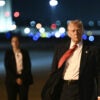As the Internet is used increasingly in Russia, the Kremlin is fighting to maintain control of Russia’s new media.
According to a poll conducted by the All-Russian Center for the Study of Public Opinion (VTsIOM) one in four Russians go online daily and nearly half of these web users go online for the purpose of checking the daily news. According to Eurasian studies expert, Paul Goble, access to the Internet reduces the ability of the Russian powers-that-be to control the messages the citizenry receives. Therefore, Moscow is considering adopting draconian measures to limit access to the Internet, or at least to intimidate users so that they will not make use of it for accessing the news.
The Daily Signal depends on the support of readers like you. Donate now
Such measures, according to analyst Aleksey Vlasov, include ones that are already in place in former members of the USSR, including the requirement that all sites be hosted only on the territory of the republic so that the owners of the Internet portals could be found. Furthermore, a recent report by Reporters Sans Frontiers, finds that:
[Russian Internet] independence is being jeopardized by blogger arrests and prosecutions, as well as by blockings of so-called “extremist” websites. The regime’s propaganda is increasingly omnipresent on the Web [and] there is a real risk that the Internet will be transformed into a tool for political control.
The government fears that if the masses obtain access to an unlimited wealth of information, chaos (i.e. opposition to government oppression) will ensue and the power of the state weakened.
Unfortunately for the Kremlin, as more and more people are using the Internet for news, they also have access to a multitude of unregulated information including many sites standing in opposition to the government. Meetings and protests are often organized through social network sites, and an Internet petition calling for Vladimir Putin to resign registered 50,000 signatures.
The Internet has not only exposed a multitude of Russians to a vast array of information, but the movement against the regime is also quickly amassing more supporters. This, according to Andrey Nekrasov, creates “a virtual reality” which gives Russians the courage to get involved in the real reality.
As the Russian people find new and innovative ways of countering government control, they will continue to be confronted by government roadblocks. Regardless of such setbacks, the Kremlin’s media censorship is not sustainable. The Russian public will eventually gain access to free media either through international support and the creation of innovative technology which will circumvent censors – despite the government’s attempts to maintain a regulated electronic media.





























